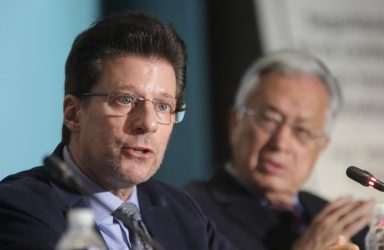Human Rights Movements in the Middle East
After decades of activism and the recent protest movements, there has been little progress in changing state action to comply with international human rights law.
Demography, Migration and Security in the Middle East
Addressing the impact of current population patterns on Middle Eastern communities and migration in the region is imperative for achieving security and stability.
Postmodernism and security challenges in the developing world
Postmodernism is “seeking out and challenging the endlessly unfolding relationship between knowledge and power, rejecting metanarratives and the Enlightenment project, and seeing ‘truth’ as a temporary social construction limited in time and space”. But do postmodernists have anything meaningful to say about the security challenges facing societies in the developing world?
Is the Emergence of International Terrorism Likely to Further Undermine the Institution of the State?
In the post-September 11th world international terrorism is synonymous with catastrophic violence and unprecedented threats to states. International terrorist groups, by their structure, makeup as non-state actors, logistical mechanisms and resources are inherently unpredictable. As we have seen in the bombing of Madrid and the ongoing violence in Iraq, terrorist groups have expanded beyond national boundaries and therefore have an unparalleled ability to strike globally. The common impression of the phenomenon of international terrorism is that it is ‘more dangerous or at least more difficult to counter’[2]than conventional, often nationalistic and politically-motivated, terrorism.
Terrorists or Freedom Fighters: A Case Study of ETA
The ETA’s armed struggle was a necessary component of retaliating against the Spanish government’s Basque oppression, and therefore, they are freedom fighters.
The challenges confronting western intelligence services after 9/11
After the attacks there was an automatic shift in intelligence interest from state to non-state actors. Agencies changed from gatherers into hunters, searching for any information revealing possible threat of attack. Compared to standard state targets, Al- Qaeda and other global terrorist groups were more difficult to find, target and spy on due to their mobility.
The Influence of China in Bringing Peace to Myanmar
China’s overall strategy in the world’s longest civil war that takes place in Myanmar is unclear, and its interests may not always align with a robust peace process.
Interview – William I. Robinson
Professor Robinson answers questions on his theory of global capitalism, the future of Venezuela’s Bolivarian Revolution, and the role of the BRICS in world order.
Water wars? The Role of Hegemony in the Jordan River, Nile River and Columbia River Basins
Predictions of “water wars” have become an important and even customary part of global diplomatic discourse. In 1995, the World Bank’s vice president for environmentally sustainable development famously asserted “if the wars of this century were fought over oil, the wars of the next century will be fought over water”. What is the truth about transboundary water and the potential for war?
Islamic State: Human Trafficking, the Media and Celebritization of Policy
Whilst celebrities may bring public awareness to causes like terrorism and trafficking, they are not held accountable for the accuracy of their representations.




